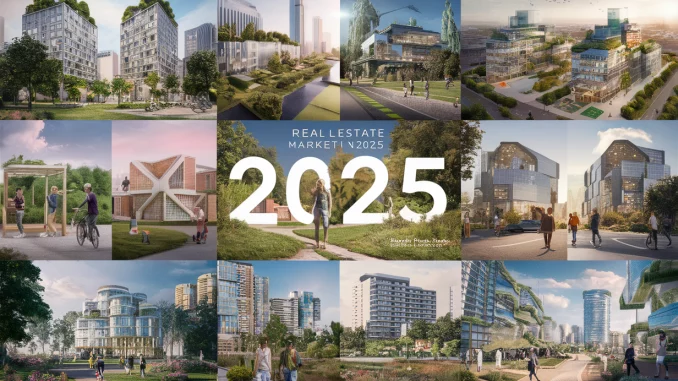
The COVID-19 pandemic is challenging multiple sectors, and real estate investment is no exception. We are now emerging from the immediate disorder of the pandemic; it remains for us to study what form real estate investment will take in the future. For future investors, both challenges and unique chances are waiting there when they open their eyes to see them.There has been a significant upheaval during the pandemic. An increasing number of people are now opting to live in single-family homes instead of high-rises, which used to be the more popular form of residence. As people returned from office to living at home only under the pressure of frequent commutes or unaffordable rent levels, they sought new ways of living and working in their home. Properties in the suburbs were particularly favored for this purpose. As families leave inner cities and move out to greener pastures, suburban property with access good schools and communal can become important
Many are seeing in
: Multi-Family Units: Creative Housing products can produce steady income streams for those holding multi-family properties in markets with rising rental levels, particularly in places where home ownership is out of reach. However, the sagging real estate market also has its own future. Now traditional office space alternatives are starting to emerge in commercial property investment. You just
Could try making money from these buildings:
Flex Space: Properties that can perform multiple functions (co-working and light industry, for example) are being gobbled up as more companies adjust their need for space.
Retail and Mixed-Use Developments: Properties that combine homes, commercial retail, government all into one complete system can be vibrant communities and draw many different kinds of people of different ages and interests. Technology and Real Estate
Alternate Investments and Niche Market
With the changing property market, niche activities are emerging. Investors may wish to consider:Short-Term Rentals: As travel picks up and the economy revives, platforms like Airbnb offer high rates of return particularly in destinations popular with tourists.
Blockchain and Smart Contracts: While the property is still on transfer, blockchain technology and smart contracts alter sequences of ownership or lease signing.
VR (virtual reality) and AR (augmented reality)Using these two technologies allows potential buyers or renters to experience a property, increasing both its appeal and quality. Long-distance travel is eliminated by software and algorithms that make it possible for people anywhere in the world to see spaces as they are in reality–not just on paper.
PropTech Innovations
New startups keep appearing with solutions to improve property management, tenant screening and investment analysis.
Sustainability and Resilience
But capitalising on the vast demand gushing into environmental real estate isn’t enough. We have to actively seek out properties reflecting our sustainable design ideals, that are thoroughly sustainable in practice–and which can increase in value. We look to both properties ready for:
“Green Buildings”: Not only do green buildings certified as sustainable (like LEED) reduce the environmental damage of development, they also make it so that which attract eco-conscious tenants–or, more neutrally, are environmentally friendly buildings.
Environments Withstanding Disaster: As climate change accelerates, sinking money into buildings capable of withstanding such out-of-the-ordinary weather makes long-term sense and has its own appeal
Niche Markets and Alternative Investments
With the changing property landscape, niche markets are emerging. Investors may consider the following:
Short-Term Rentals: With the opening up of travel, platforms such as Airbnb provide a route to high returns–especially in locations which are popular among tourists. the ethical necessity as well as the making-money opportunity for those who can grasp it.
affordable housing. With people wandering lost and impoverished in need of good homes, there is as well.
Healthcare Real Estate: The pandemic has highlighted just how important healthcare infrastructure is.The area is ripe now for investment. For example through medical office buildings or senior living facilities.`
Global Perspective
Investors need to look at international markets. As borders open once more, cross-border real estate investment opportunities continue to expand. Currency swings and different market dynamics can provide particular advantages for those who venture beyond their own country.
Conclusion
In a post-pandemic world, there are still some opportunities for reinvestment in global business. For real estate investors to lead the way, aligning themselves with emerging trends in technology, anchoring in sustainability and deliberately seeking out some markets that have scanty life left, then they will live nicely at such an evolving stage. For the future, as real estate continues to rebound and reestablish itself, staying abreast of professional knowledge and having flexibility will seize development opportunities that lie in store.